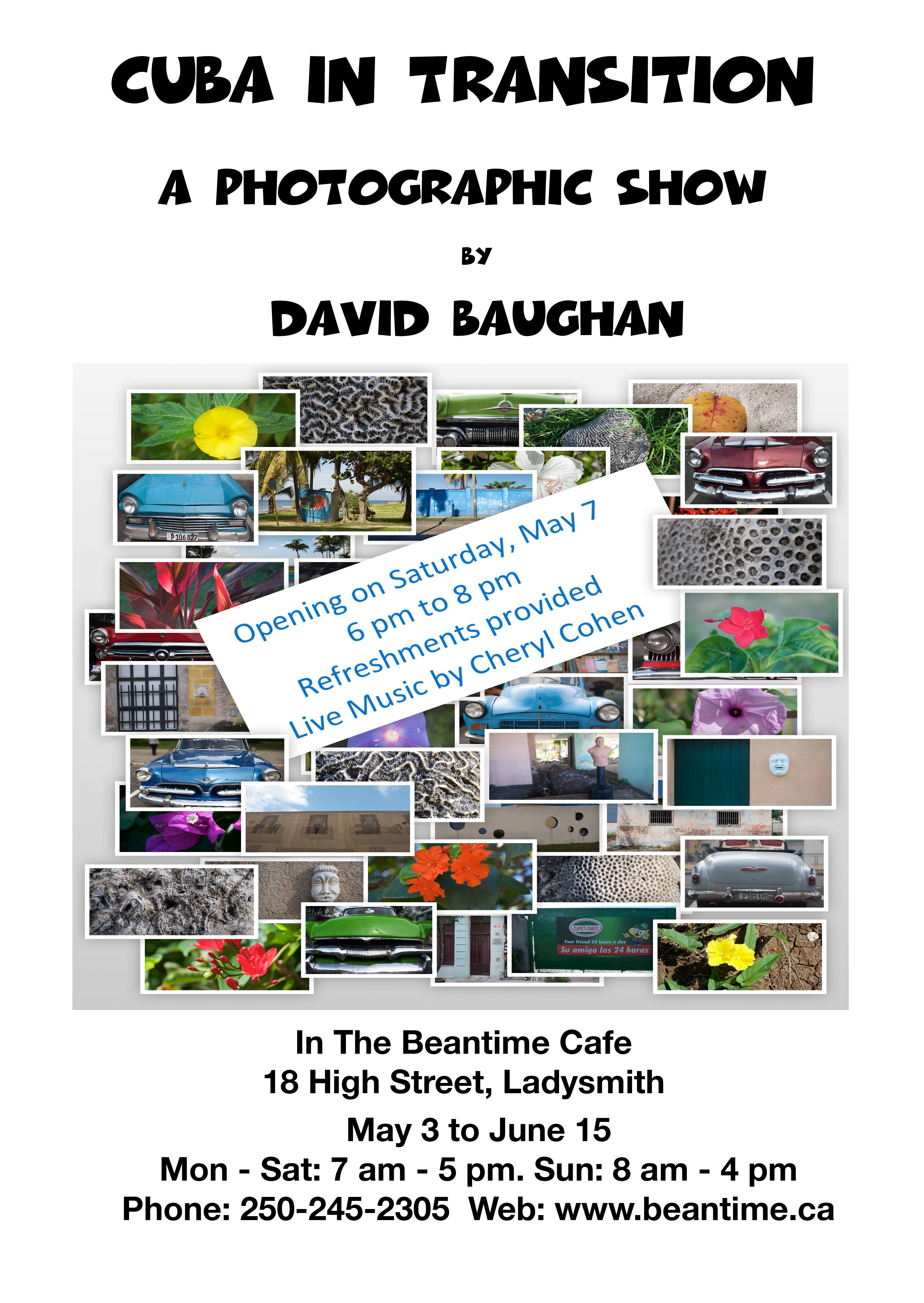Cuba in Transition

- This event has passed.
Cuba in Transition
May 7, 2016 @ 6:00 pm - 8:00 pm
Free Admission
David was born in London and followed his parents to South Africa in the 1960s. He completed a technical degree in photographic arts and sciences before working as a stills photographer on Athol Fugard’s Boesman and Lena. After the movie was completed David started on another movie that was halted by the South African Security Branch and he and the other British technicians were deported.
He returned to England and worked for many years as a freelance editorial photographer in Europe before becoming the Royal Ballet’s photographer for seven years. After leaving the ballet company he began to exhibit his photographs in Europe and then in New York at the 4th Street Photographic Gallery. His work is now held in the Museé national d’art moderne collection in Paris and he has exhibited in most of the major European capitals. David’s recent photographic exhibits include the Chemainus Theatre Festival and ArtSpring on Salt Spring Island, where he now lives. He is also an Equity theatre stage manager, lighting designer and author.
David will also be exhibiting these photographs at the Cowichan Theatre in Duncan in June, 2017 and at ArtSpring on Salt Spring Island in October 2017.
Cuba in Transition: The Artist’s Statement
“The socialist revolution has not failed in Cuba. It is a work in progress that we can all learn from and support. The country is going through another unique phase in its revolutionary cycle. The capitalist world, and the United States in particular, would have you believe that Cuba will soon fall again under its domination. And return to the hedonistic Mafiosi-run playground that it was before.
As the northern neighbour, Canada is dominated by US culture, and from across the Straits of Florida, Cuba is already feeling the return of that cultural imperialism. There are dramatic changes now in the look and feel of areas of downtown Havana as breaches appear in the economic embargo that the US introduced at the start of the Sixties.
It will be a tough fight to stop US dominance there, as it still is in Canada. The so-called restrictions on communication (such as internet controls on bandwidth that are as much of an economic necessity after the failure of a form of socialism in Venezuela as they are political in form) may be able to stem that tide. But the “improvements” that are impatiently being introduced in the name of progress may win out in the end.
That is why it is important to document the current realities and open up conversation so we can all learn and prepare to stand up against the looming capitalist invasion.
It is interesting to note that Cuba is in a unique position among non-capitalist countries. Even Vietnam and China, once enemies of the United States, are now accepted as US trading partners, but the US Congress is among those who still see Cuba as a socialist threat. The New York Times quoted Wayne Smith, a former top American diplomat to Cuba and a prominent critic of the embargo, as putting it this way: “Cuba seems to have the same effect on American administrations as the full moon has on werewolves.”
The Cuban revolution has not been defeated and its work is not yet over. These are dangerous times, though, and there is a strong need to challenge both the misconceptions and misinformation American media organizations spread.
I sincerely hope that by examining Cuban cultural traditions we can support the joy that pervades Cuban society and encourage the love and friendship that is part of everyday life there.”
David Baughan
May, 2016